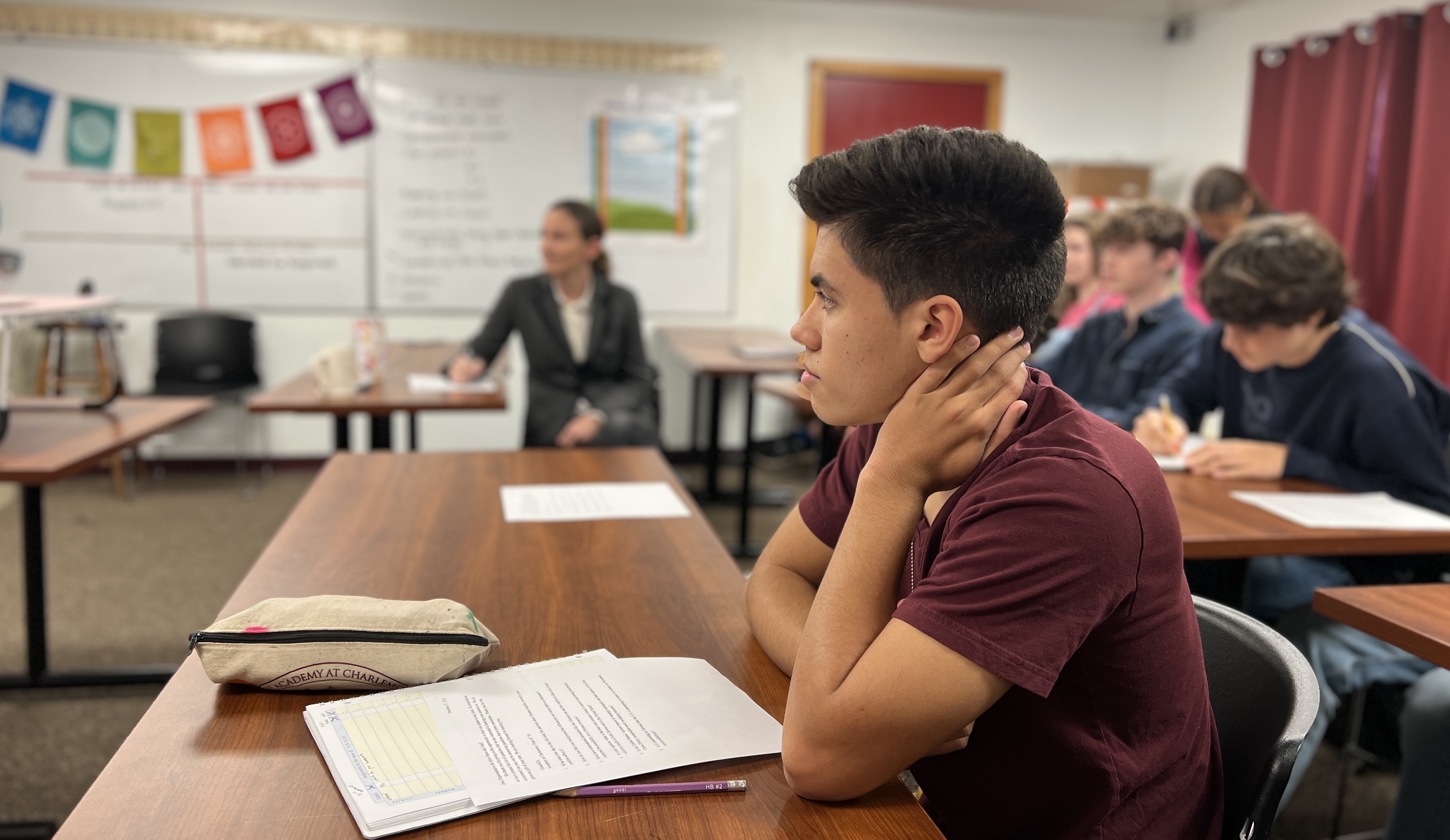Academics

A student’s academic program at The Academy requires each individual to be a generalist, acquiring knowledge of mathematics, science, history, English, art, music, Latin, and a modern foreign language. By offering those learning experiences in small classes led by skillful teachers, we foster active engagement with the ideas at hand; students debate ideas with each other in seminars, collaborate with each other in the laboratory, critique each others’ work on the stage and in the studio, and present to each other the fruits of their research. Students are expected to build upon earlier experiences and learning, applying themselves to incrementally more difficult tasks as they grow and mature.
The Academy is divided by grade (6th-12th) and also by school—Lower School (6th-8th) and Upper School (9th-12th). The academic focus of the Lower School is skill development and process, while Upper School academics stress mastery and content. A shared schedule, a shared faculty, and a shared facility however, lessen this distinction. Students in the Lower School may take classes in the Upper School (generally in math and foreign language) and vice versa.
The core sequence of study provides a broad common ground on which students with different views, interests, goals, and backgrounds can come together to form an intellectual community based on shared knowledge and common purpose, generating discourse that honors and appreciates diverse individual voices, needs, and perspectives.
Students are given ample opportunities, both within specific classes and as part of the broader academic program, to pursue their individual intellectual interests. Our research projects, exhibitions, essays, field work, senior projects, art projects and other learning activities are driven by student interest and initiative. These program elements give students a chance to investigate in an open-ended way, challenge themselves, and assume responsibility for their work. The lessons drawn from independent scholarship––self-discipline, intellectual curiosity, and independence––are reinforced by the conduct of each class.

